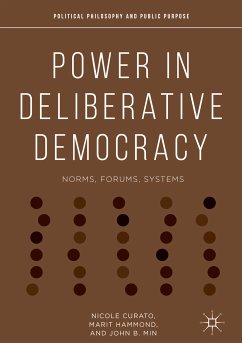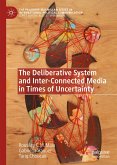This book is inspired by these accusations. It argues that deliberative democracy's tense relationship with power is not a pathology but constitutive of deliberative practice. Deliberative democracy gains relevance when it navigates complex relations of power in modern societies, learns from its mistakes, remains epistemically humble but not politically meek. These arguments are situated in three facets of deliberative democracy-norms, forums, and systems-and concludes by applying these ideas to three of the most pressing issues in contemporary times-post-truth politics, populism, and illiberalism.
Dieser Download kann aus rechtlichen Gründen nur mit Rechnungsadresse in A, B, BG, CY, CZ, D, DK, EW, E, FIN, F, GR, HR, H, IRL, I, LT, L, LR, M, NL, PL, P, R, S, SLO, SK ausgeliefert werden.









